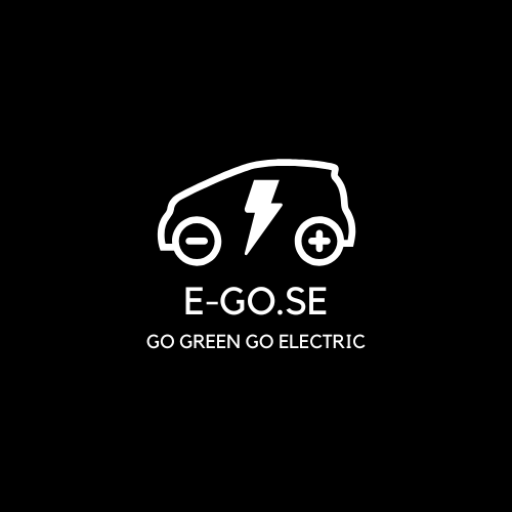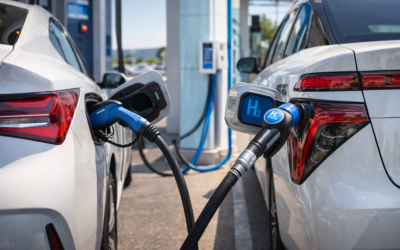As more people turn to environmentally-friendly vehicle options, the debate between electric cars (EVs) and hybrids continues to grow. Each option offers unique benefits and challenges, and the best choice for you often depends on factors such as driving needs, budget, and commitment to sustainability. In this article, we’ll break down the primary differences between electric cars and hybrids, helping you determine which is the right fit for your lifestyle.
Understanding Electric Cars
An electric car runs exclusively on electricity stored in its battery, making it a fully zero-emission vehicle. Popular electric models include the Tesla Model 3, Nissan Leaf, and Chevrolet Bolt. These vehicles rely on external power sources for charging, from home charging stations to public charging infrastructure.
Key Features of Electric Cars
- 100% Electric Power: Electric vehicles operate without any gasoline, relying entirely on their battery for power.
- Zero Tailpipe Emissions: EVs produce no exhaust emissions, which contributes to reduced air pollution and lower greenhouse gases.
- Lower Running Costs: Charging an EV is generally cheaper than fueling a gasoline car, making it a cost-effective choice over time.
- Quiet Driving Experience: EVs are nearly silent when running, providing a smooth and quiet driving experience.
Understanding Hybrid Cars
Hybrid vehicles combine an internal combustion engine with an electric motor, allowing them to switch between using gasoline and electric power. Popular hybrid models include the Toyota Prius and Honda Insight. Hybrid cars generally recharge their batteries through regenerative braking, and some newer models also offer limited electric-only driving.
Key Features of Hybrid Cars
- Dual Power Sources: Hybrids use both gasoline and electric power, providing a blend of traditional and green driving.
- Reduced Emissions: While hybrids aren’t completely emission-free, they emit less pollution than traditional gasoline vehicles.
- No Charging Required: Hybrids recharge their batteries through regenerative braking and the engine, eliminating the need for external charging.
- Flexible Driving Range: With access to gasoline and electric power, hybrids offer a longer range than most fully electric cars.
Comparing Electric Cars and Hybrids
Environmental Impact
Electric cars have the edge when it comes to environmental impact, as they produce zero emissions during operation. However, hybrid cars still offer environmental benefits over traditional gasoline vehicles. They emit fewer greenhouse gases and pollutants, making them a more eco-friendly option than conventional cars but not as clean as fully electric vehicles.
Cost Efficiency and Maintenance
Electric cars typically have higher upfront costs but offer lower long-term operating expenses due to reduced fuel costs and minimal maintenance requirements. Electric motors have fewer moving parts than internal combustion engines, resulting in less wear and fewer maintenance tasks. In contrast, hybrids generally have lower purchase prices but still require gasoline, though at a reduced rate compared to conventional cars. Maintenance needs are more frequent than in EVs due to the additional components in the engine and exhaust systems.
Driving Range and Charging
One of the main advantages of hybrids is their extended range, as they can seamlessly switch to gasoline when the electric battery runs low. This makes hybrids an excellent option for long-distance travel, especially in areas where charging stations are scarce.
Electric cars have a limited range that varies by model, and they require access to charging infrastructure. For daily commuting and city driving, range is usually not an issue, especially with models that now offer over 200 miles per charge. However, long-distance drivers may find this limiting unless they plan their trips around charging stations.
Charging Requirements and Availability
Hybrids don’t need external charging, as their batteries recharge during driving. This makes them convenient for those without access to home charging or who frequently travel long distances.
Electric cars, however, require consistent access to charging infrastructure, either at home or through public charging networks. While this may be inconvenient for some, advances in charging technology and the growing availability of fast-charging stations have made EV ownership more accessible.
Performance and Driving Experience
Electric cars are known for their instant torque, which provides quick acceleration and a smooth, responsive driving experience. They operate quietly, making for a peaceful ride.
Hybrid cars offer a similar experience, though they may not accelerate as quickly as EVs due to the reliance on both gasoline and electric power. The driving experience in a hybrid can vary based on the level of electric assistance and the size of the internal combustion engine.
Electric Car vs. Hybrid: Which is Right for You?
Electric Car: Ideal for Daily Commuters and Eco-Conscious Drivers
Electric cars are best suited for those who have short to medium daily commutes and access to charging infrastructure. If you prioritize sustainability, lower running costs, and the latest technology, an electric car is likely the best fit. EVs offer the highest environmental benefit by eliminating tailpipe emissions, and the lower fuel and maintenance costs over time can offset the initial investment.
Hybrid Car: A Flexible Choice for Long-Distance Travelers
Hybrids are ideal for drivers who need more flexibility in range and want a greener vehicle without depending entirely on charging stations. They are particularly advantageous for those who frequently take long trips, live in areas with limited charging infrastructure, or lack access to home charging.
Pros and Cons of Electric Cars
Pros
- Zero emissions, contributing to cleaner air
- Lower fuel and maintenance costs over time
- Quiet and smooth driving experience
- Access to incentives and tax credits in many regions
Cons
- Limited driving range compared to hybrids
- Dependence on charging infrastructure
- Higher upfront purchase cost
- Longer “refueling” times compared to gas stations
Pros and Cons of Hybrid Cars
Pros
- Greater driving range due to dual fuel sources
- No need for charging infrastructure
- Lower emissions than gasoline-only cars
- More affordable initial cost compared to EVs
Cons
- Still uses gasoline, so not emission-free
- Higher maintenance needs due to complex components
- Limited electric-only range (if any)
Conclusion: Choosing the Best Option
Both electric cars and hybrids have unique advantages that cater to different driving needs. Electric cars offer a fully sustainable option with long-term savings and advanced technology, making them ideal for urban drivers and those committed to reducing their carbon footprint. Hybrids provide flexibility, extended range, and a bridge between traditional and electric power, making them a practical choice for those who need versatility without the requirement of a charging network.
Ultimately, the choice between an electric car and a hybrid will depend on your driving habits, environmental priorities, and available infrastructure. Both options offer substantial benefits over traditional gasoline vehicles, contributing to a cleaner, more sustainable future in transportation.


0 Comments